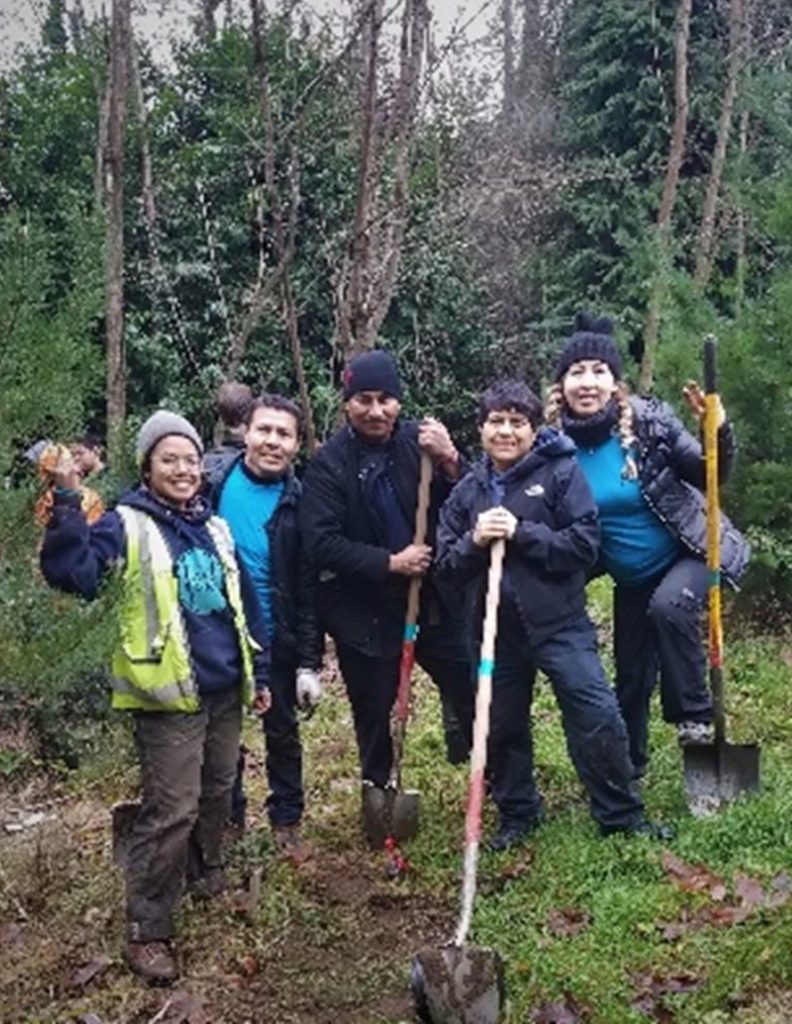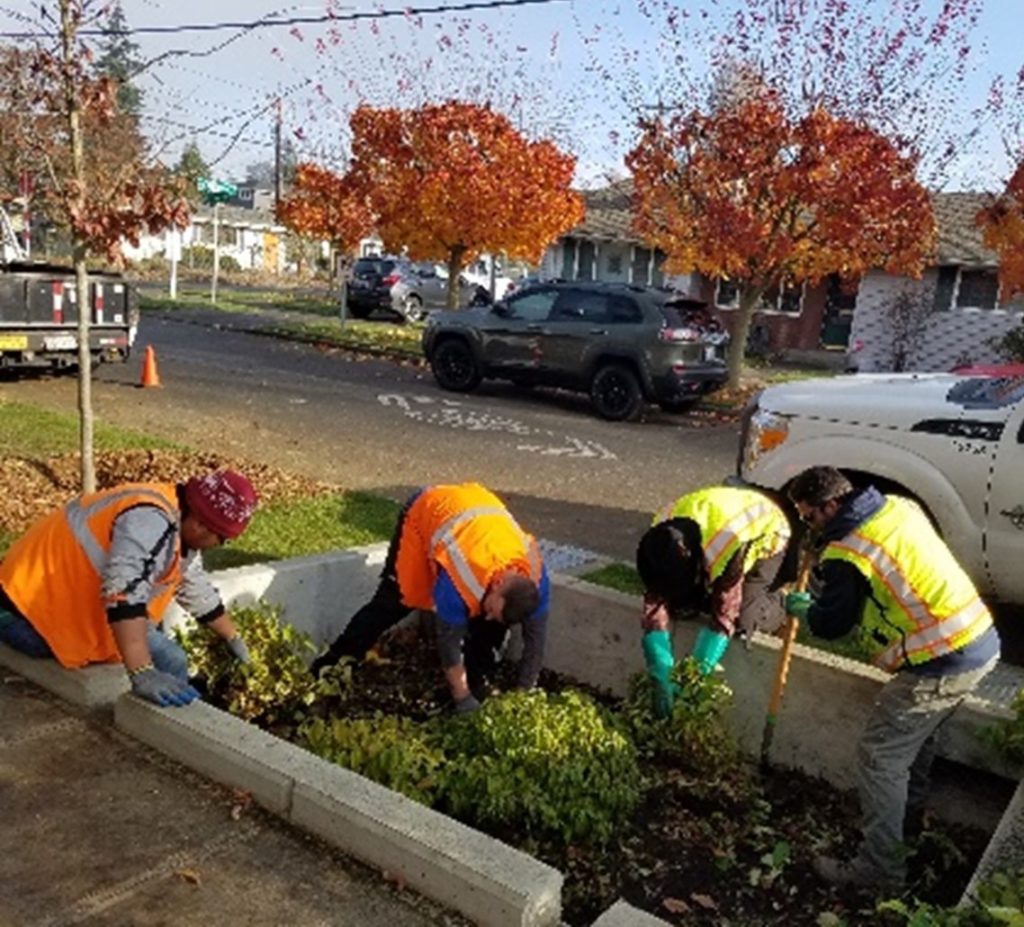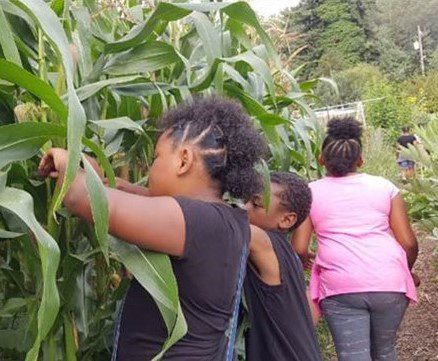
By Belinda Chin and Todd Burley with contributions from B Hill
Climate change has impacted people in many ways – from more extreme heat events and increased air pollution with wildfire smoke to rising sea levels and king tide events in vulnerable areas (see Google Earth Time-lapse for 40 years of development impacts captured in images). Yet these impacts are felt disproportionately be lower-income households and people of color. At Seattle Parks and Recreation (SPR), we are seeking ways to mitigate the impacts of climate change, and in doing this we must consider the intersection of social justice and environmental degradation. Climate Justice must embody our work.
In that spirit, SPR acknowledges that the city of Seattle and its greenspaces are on stolen Coast Salish land, specifically the ancestral land of the tribes and bands of the Duwamish, Suquamish, Stillaguamish, and Muckleshoot nations. We recognize the stewardship of Seattle’s greenspaces by the Coast Salish people since time immemorial, the disruption of their relationship to the land by colonization, and their resilience in continuing their endeavors from generation to generation in unbroken cycles of lived experience. We make this acknowledgment to remind ourselves that, by being here today, we strive to remedy this injustice through our beliefs and actions in helping to steward our green spaces and communities in Seattle
Climate justice seeks to transition our entire economy from one that is extractive to one that is relational and sustainable. Four areas of climate justice rise to the top of SPR’s considerations: ecological restoration, racial justice and social equity, localization of production and consumption, and retaining, restoring and celebrating cultures and traditions.

SPR has a long history of ecological restoration. As manager of nearly 12% of the city’s property, we take our role in this seriously and use environmentally-responsible management practices for all our parks – from neighborhood parks to natural areas. Our Green Seattle Partnership has 1,845 acres of urban forest in some stage of restoration and has planted over 30,000 trees. This habitat restoration is a critical part of our urban ecosystem, and even extends to our developed parks where we are expanding our pollinator pathways. It also extends to our creeks and shorelines where we work to restore those riparian ecosystems.
Equity is also a core of our work. Currently 94% of households live within a half-mile of one of our parks, which is great, but our acquisition strategy is not focused on getting to 100%, rather it seeks to focus our open space program in areas most in needs of the benefits they provide.

We also seek to create programming for people in identified equity areas in Seattle, such as expanding our environmental education programs out of our Environmental Learning Centers and into underserved neighborhoods. Finally, we also host green job pathways programs like the Youth Green Corps and Seattle Conservation Corps that provide experience, skills, and opportunities to enter green jobs in our field.

Through the Urban Food Systems Program, SPR also supports local production and consumption as ways to mitigate food insecurity. We manage over 700 fruit trees, many community gardens, and P-Patches to offer a chance for people who may not have yards to grow local, healthy, and organic food. This food is often then donated to food banks or communities in need to help mitigate food insecurities present in our community.

And we strive to reflect the diverse histories, cultures, and traditions of people who have made this city their home. Many parks are named after prominent BIPOC (Black, Indigenous, and People of Color) leaders in our community and include interpretation about their lives and contributions (check out this blog post for Black History Month). We are also working to undo the historical attempted erasure of Coast Salish peoples by restoring Indigenous place names in our parks as well as referencing traditional ecological knowledge. Finally, parks and community centers are affordable spaces to meet and gather in for many in our community. Historically, our parks are seen as one of the greatest democratizing forces in our city.
Addressing the impacts of climate change is a mammoth task, yet by directing our response first to those most impacted, Seattle Parks and Recreation is seeking to embody the relational solutions of climate justice.